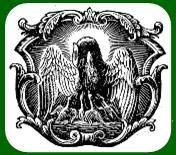
|
Mother Pelican
A Journal of Solidarity and Sustainability
Vol. 14, No. 3, March 2018
Luis T. Gutiérrez, Editor
|
|
|
|

|
|
|
Cultural Disintegration
Martin E. Marty
This article originally appeared in Sightings,
a publication of
the Martin Marty Center for the Public Understanding of Religion
at the University of Chicago Divinity School, 26 February 2018
REPRINTED WITH PERMISSION
“Cultural disintegration” is a useful description of what commentators and publics consistently witness these years. Left and right, liberal and conservative, male and female (etc.), old and young, all observe and chronicle the signs of it. The historian in me prompts the question: are there precedents for such an outlook? The answer, of course, is “yes,” but it becomes interesting only when we turn to specific cases. Here is my favorite analysis, by a theologian who points to four signs.
Breaking news: “First of all [there is] a feeling of fear, or, more exactly, of indefinite anxiety … Not only the economic and political, but also the cultural and religious, security [seems] to be lost.” Anyone who pays attention to current events readily finds documentation.
This feeling of anxiety has a social consequence, experienced as a second mark of cultural disintegration, when there exists “a general uncertainty.” Mass media, commerce, entertainment, and societal institutions manifest and promote this. Whoever needs supporting documentation need only look and listen.
The third characteristic of cultural disintegration our lecturer describes as “loneliness … Every single unit is lonely in itself, without any direct communication.” He claims that there was once a common world, “[b]ut when the remnants of a common world broke down, the individual was thrown into complete loneliness and the despair connected with it.”
This speaker adds a fourth sign: the “most basic symptom of the cultural disintegration is the feeling of meaninglessness and the resulting cynicism. Not only the religious symbols of earlier centuries [have] lost their power of giving a meaning to life, but also the philosophical and political symbols which were supposed to replace them.”
In such a time, youth, the speaker notes, “looks for religious symbols—and if it cannot find them, for quasi-religious ones.” Thereupon “[s]kepticism and cynicism conquer the spirit and open the hearts for the entrance of ‘demonic symbols,’” and leaders who promise “security and certainty and community and a new meaning of life,” which, in the time and place of the speaker, are being provided “in a demonic and self-destructive way.”
It is time to identify our lecturer, and his time and place. This was theologian Paul Tillich, addressing the Fiftieth Church Congress of the Protestant Episcopal Church in Indianapolis on May 6, 1942. The “demonic and self-destructive” forces he identified, five months after the United States entered World War II, were “Fascist and National Socialist” revolutionaries. It might be hysterical, histrionic, and counter-productive to seek or suggest identities between the historical moments and agents then and now. Still, Tillich was writing with broad and basic issues and challenges in mind, from which later generations can learn.
Tillich called his lecture “The Storms of Our Times.” Serious people are now called and calling others to face the storms and crises of a later day, and to be attentive to what Tillich elsewhere called The New Being, which he depicted and described “as Love,” “as Freedom,” and “as Fulfillment.”
Resources
- Tillich, Paul. The New Being. Scribner, 1955.
- —. The Protestant Era. University of Chicago Press, 1948.
|
ABOUT THE AUTHORS
Martin E. Marty (PhD’56) is the Fairfax M. Cone Distinguished Service Professor Emeritus of the History of Modern Christianity at the University of Chicago Divinity School. His biography, publications, and contact information can be found at www.memarty.com.
|
|Back to Title|
LINK TO THE CURRENT ISSUE
LINK TO THE HOME PAGE
|
|
|
|
"If the fire in our heart is strong enough, it will
burn away any obstacles that come our way."
Suzy Kassem (b. 1975)
|
|
Page 15
|
|
FREE SUBSCRIPTION
|
![[groups_small]](groups_small.gif)
|
Subscribe to the
Mother Pelican Journal
via the Solidarity-Sustainability Group
Enter your email address:
|
|
|
|